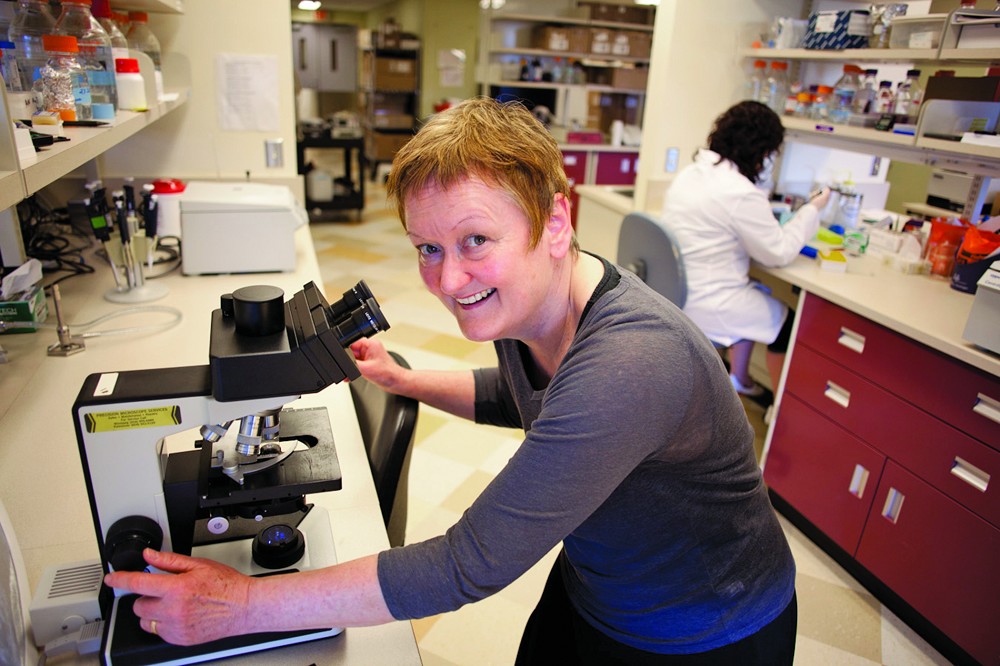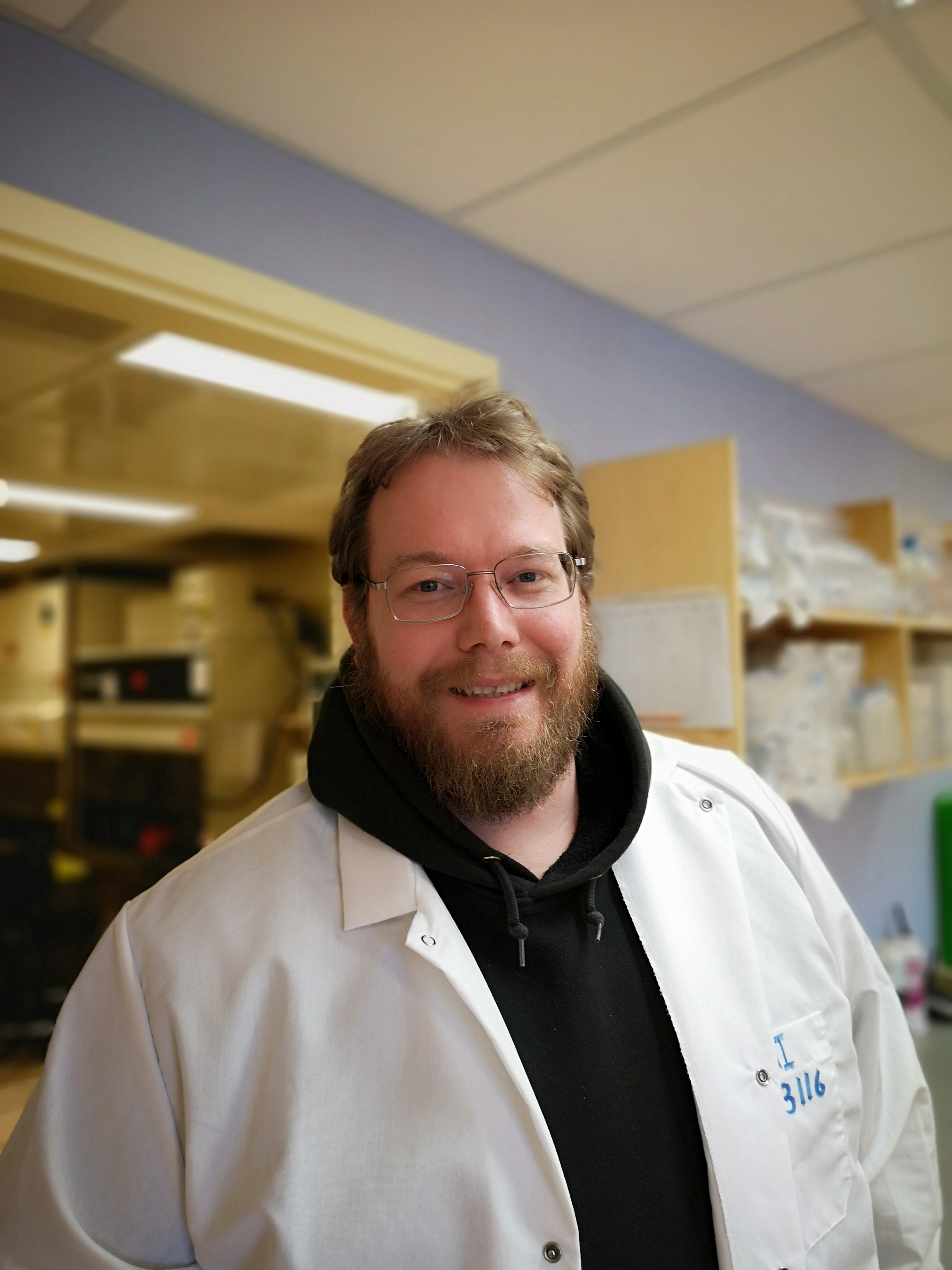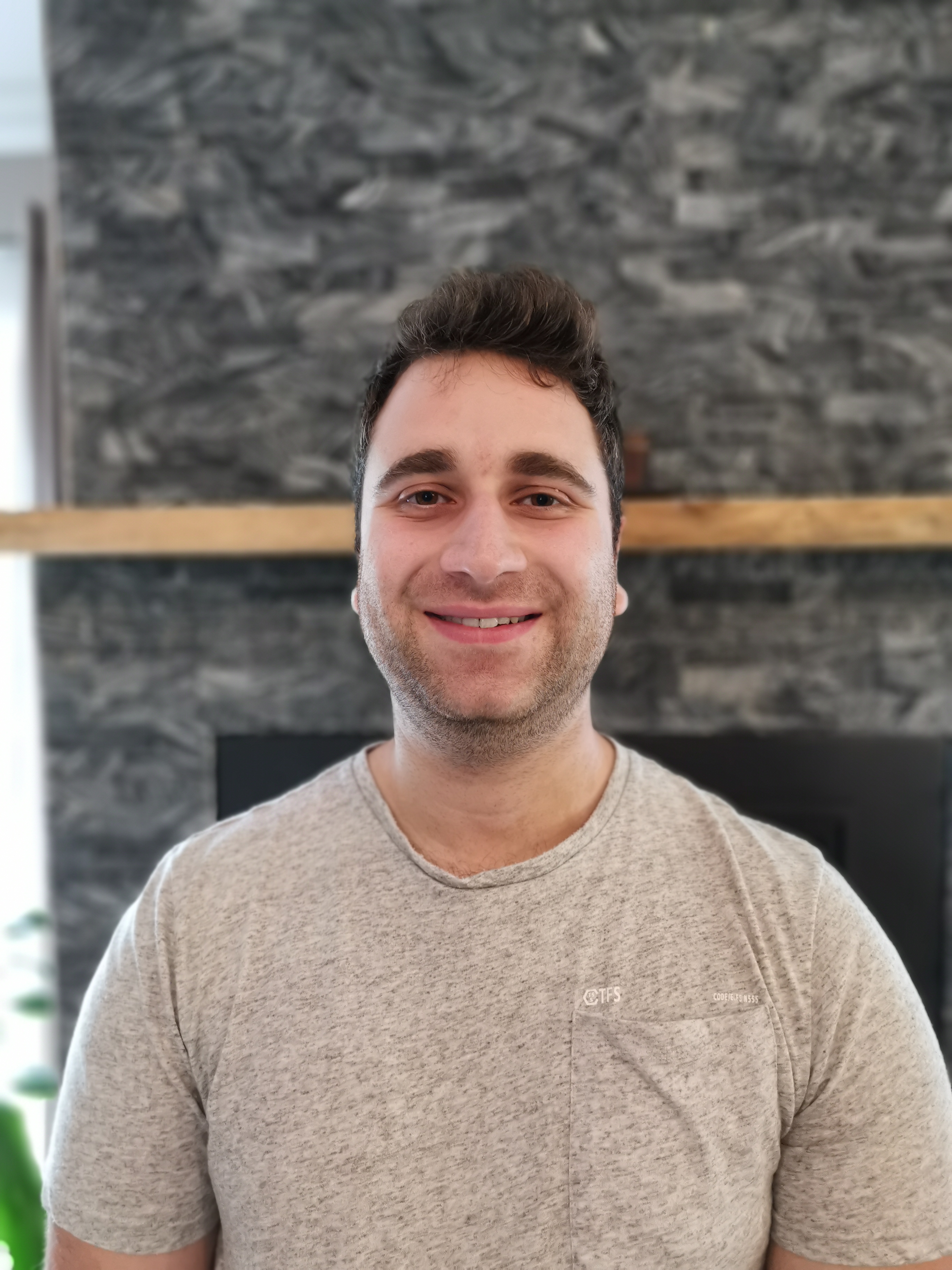Zehbe Research Group Steps Up Work into HPV-Associated Cancers and Treatments



Dr. Ingeborg Zehbe is a cancer biologist and researcher in the field of cancers related to human papillomavirus (HPV). photo credit: Zehbe Research Group; Dr. Guillem Dayer, a post-doctoral fellow, is investigating the use of antibodies against cervical cancer; Graduate student Mehran Masoom assisted on a project identifying proteins in HPV-infected cells.
By Julio Heleno Gomes
A team of scientists and students affiliated with Lakehead University, the Thunder Bay Regional Health Sciences Centre (TBRHSC) and the Northern Ontario School of Medicine has been conducting research related to certain types of cancers springing from a common infection. The efforts of members of the Zehbe Research Group has earned them a sterling reputation.
“My collaborations with other scientists has carved out a research niche that is unique in Canada and that has been well-rewarded with success and awards in the very competitive research landscape,” says Dr. Ingeborg Zehbe, a cancer biologist and head of the Zehbe Research Group.
Zehbe is a Lakehead University Thunder Bay Regional Health Research Institute Research Chair and an associate professor with the Northern Ontario School of Medicine. The Zehbe Research Group focuses on cancers related to human papillomavirus (HPV), a sexually transmitted infection that can linger in men and women, potentially leading to cancers such as head and neck, cervical and anal. In Northwestern Ontario, for example, there is a significantly higher incidence of cervical cancer, particularly in First Nations communities.
“Indigenous women have a higher risk of developing cervical cancer,” Zehbe says, noting rates can be two to 20 times the national average. The reasons for that discrepancy are due to geographical barriers, limited access to care, and cultural sensitivities.
“There are many logistical issues, but also historical trauma and lack of awareness,” Zehbe says. “It’s really three things — logistics, education and history — that leads to the fact that Indigenous women in our area aren’t screened as much.”
To that end, in 2012 Zehbe and a multi-disciplinary team launched the Anishnaabek Cervical Cancer Screening Study (accssfn.com), which encouraged screening among women from 10 First Nations in the region. By working with women and health-care providers in these communities, the team developed a culturally safe self-testing method, increasing cervical cancer screening for Indigenous women.
Zehbe joined the Thunder Bay Regional Health Research Institute in 2009, having completed post-doctoral research in Germany on HPV as a cancer-causing agent. Her work on HPV screening and prevention involves experts in fields such as physics, engineering and chemistry, focusing on early detection, treatment and follow-up.
“The key is our interdisciplinary approaches,” Zehbe says of those efforts.
The current complement at the Zehbe Research Group consists of graduate students, PhD candidates and post-doctoral fellows. One of them is Dr. Guillem Dayer, who grew up in Africa and became interested in the interaction of different parasites that cause infectious diseases such as malaria and giardiasis. Since arriving in Thunder Bay two years ago he’s been investigating the use of small antibodies to target a specific viral protein that is a main contributor to the development of cervical cancer.
“Understanding protein interactions and functions is essential to target them for the development of therapeutics,” Dayer says. “For my post-doctoral fellowship, I wanted to apply my knowledge in protein interactions to work more specifically on targeting them using antibodies. Dr. Zehbe gave me the opportunity to perform such research in her lab.”
Mehran Masoom, who recently obtained his Master’s degree in Biology, assisted on this project. His role was to develop a method to isolate certain proteins through mass spectrometry analysis.
“This took quite some time but I did succeed in making a protocol that worked and I was able to identify numerous proteins,” Masoom explains.
He’s currently working on confirming the presence of each identified interacting protein within the HPV-infected cells.
“If these pathways or mechanisms are able to be targeted, it can open a new possibility to develop potential therapeutics,” he adds.
Recent members of the Zehbe Research Group are: Robert Jackson and Melissa Togtema (PhDs in biotechnology); Jordan Lukacs (researcher); Statton Eade (research assistant); Alejandro Ortigas Vásquez (bioinformatics researcher); and fourth-year student Simran Bedi.
Zehbe has mentored more than 50 students at all levels and secured more than $2-million in funding, from, among others, the Natural Sciences and Engineering Research Council of Canada, the Canadian Institutes of Health Research, the Canadian Cancer Society, the Ontario Institute for Cancer Research, the Northern Ontario Heritage Fund Corp., and the Northern Cancer Research Foundation.
published in the Chronicle Journal August 31, 2020


